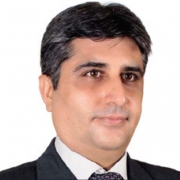
Money

In the first of a new series, learn more about mutual funds as a long-term savings option, says Dick Mody
I feel highly privileged to be given an opportunity to address such a mature and experienced group of readers. As this is my first article in this prestigious publication, let me commence my journey with one of the best quotes I have ever heard, by American writer and broadcaster Andy Rooney: “The best classroom in the world is at the feet of an elderly person.” In short, while I may claim to share my ‘wisdom’ with you enlightened readers, I humbly pay homage to the scores of wise folk whose teachings have shaped my thought process. I am honoured to share some of these learnings with you in the hope that you will find them of use—this month, we will answer some frequently asked questions about mutual funds.
Are mutual funds (MFs) relevant to silvers?
My senior clients ask me this question often—and it is perfectly valid. My answer to this is absolutely ‘Yes’! MFs are relevant to persons of all ages and incomes but especially to those nearing retirement or already retired owing to the superior features of liquidity, tax-adjusted returns and the safety they offer compared to traditional savings instruments.
To put it simply, a mutual fund is a professionally managed investment vehicle that pools contributions called ‘units’ from a group of people and then invests the same in either shares, bonds or other securities depending on the type of scheme chosen. The rights and obligations of each unit holder are the same as the rest of the unit holders in that scheme. The biggest advantage of investing through an MF is that it gives investors—big or small—easy access to stocks and securities, which would be quite difficult to create with a limited amount of capital. Also, remember, just like professional doctors or lawyers or engineers have to be full-time practitioners of their trade and be constantly updated in their knowledge, so does a professional fund manager or investment advisor. So, once you have chosen the right person/funds, you don’t have to worry about the day-to-day management of your investments.
For silvers, it is of paramount importance to plan your life after retirement and gain financial independence, before planning your inheritance to your family or a cause closest to your heart. In effect, MFs help us plan a dignified and enjoyable life and use our wisdom to secure the future of our loved ones.
Isn’t an MF very risky?
MFs first started in India in 1964 under the Unit Trust of India (UTI), followed by several public-sector undertakings after 1987 and the private sector from 1993. Today, MFs manage close to ₹ 21 lakh crore of assets. With such a large amount of public savings at stake, there is very strict oversight and regulation of MFs, not only by SEBI but RBI, the Companies Act, the stock exchange, Indian Trust Act and the Ministry of Finance. So, rest assured your money is in no danger of being usurped or misused.
How do I know how much risk I am taking in an MF?
Before investing, it is important to understand that there are different types of MFs. For instance, some are open-ended, which means you can buy and sell them anytime; others have a lock-in period of, say, three to five years. Most funds also charge investors for early withdrawals (called exit load) while some may incur a tax charge on you if withdrawn before a specific period as per the Income Tax Act.
Most important, funds can be classified broadly into high risk-high return (equity funds) and moderate risk-moderate return (debt funds). There are also several hybrid and liquid funds that help save tax compared to company deposits or bank FDs. An intelligent financial advisor can help you understand these nuances and choose the funds that best suit your individual needs. In my view, this is the most important step to take before committing your hard-earned money to any financial instrument, including MFs. My personal advice to silvers is to clearly divide your savings into different asset classes, with debt-oriented mutual funds and hybrid funds comprising at least 60-70 per cent of your total portfolio.
I am not comfortable using the Internet. While I can see my balance in the bank passbook, how do I keep track of the value of my investments in an MF?
Just like you can see your savings account or fixed-deposit balance in your passbook or statements, you can view the total value of your holdings in a Mutual Fund Statement of Account. If you choose, you can receive a printed copy of the same every month by post. You can also see the net asset values of your fund in leading newspapers. Thus, you don’t have to be net-savvy to invest in MFs.
How much money will I receive if I redeem my money today?
Your investment value as on any particular day is the NAV per unit multiplied by the number of units you hold. The NAV is calculated after all charges as per the scheme document. So whenever you redeem your units, that is the total amount you will get back—unless, of course, there is an exit load for premature redemption. The balance is usually directly credited to your bank account so there is no need for you to beg and cajole any officer or run repeatedly to the fund house to ensure the redemption goes through.
In conclusion, I believe MFs offer a fantastic option to plan and grow your wealth over all spectrums of time.
What Is NAV?
NAV or net asset value is the market value of your holding in the fund on a particular date. For instance, say you purchased 1,000 units of SBI Bluechip Fund on 1 January 2016 at ₹ 29 per unit and today the same is ₹ 37, ₹ 29 and ₹ 37 represent the NAV per unit on the respective dates. The NAVs of each scheme of each fund house can be tracked daily so you are fully aware of the value of your investments at all times.
Dick Mody, a 25-year veteran in the Indian equity markets, is the founder of Ethical Advisers. Write to us with your financial queries at contact.us@harmonyindia.org and Mody will answer them in this column. You can also reach him directly at dhm@ethicaladvisers.in
Photo: 123RF.com Featured in Harmony — Celebrate Age Magazine October 2017
you may also like to read
-
Pension hike
The stage is set for a manifold hike in pension for private-sector employees with the Supreme Court quashing a special….
-
Budget 2019: ‘A big let-down’ for silvers
The verdict is out: Experts Harmony-Celebrate Age spoke to termed Budget 2019 ‘a big let-down’ for silvers. The only saving….
-
Silvers seek sops in health sector in Budget 2019
Relief in the healthcare sector seems to be uppermost in the minds of silvers on the eve of the unveiling….
-
Cheer for pensioners
The Union Government has launched Sampann (system for accounting and management of pension), a pension management software to aid and….








